Understanding How the World Economy Shapes Our Everyday Lives
- Randyb Dinwiddie
- 1 hour ago
- 5 min read
When we hear about "the global economy," it can sound like a distant concept : something meant for bankers, politicians, and economists to debate. But in reality, the world economy is woven into every part of our daily lives : from the cost of groceries to the strength of local job markets. Understanding how it works helps us make smarter financial decisions and prepare for changes that might otherwise catch us off guard.
At Dependable Brokers, we've seen firsthand how global economic shifts impact local businesses and their advertising strategies. When owners understand these connections, they can adapt faster and make better decisions for their companies and families.
What Is the World Economy?
The world economy is the total system of trade, production, and financial exchange that connects every country. Think of it as a massive network where every part influences every other part.
It includes:
Imports and exports (goods and services traded between nations)
Currencies and exchange rates that determine buying power
Labor and technology shared across borders
Investment in global markets and industries
Supply chains that stretch across continents
When one part of this system changes : say, fuel prices rise in the Middle East or manufacturing slows down in China : it can send ripples through the entire network. Recent examples show just how quickly these effects spread: Russia's invasion of Ukraine disrupted global supply chains, triggering a 166.8% increase in natural gas costs over 12 months and pushing wheat prices up by 40% annually.
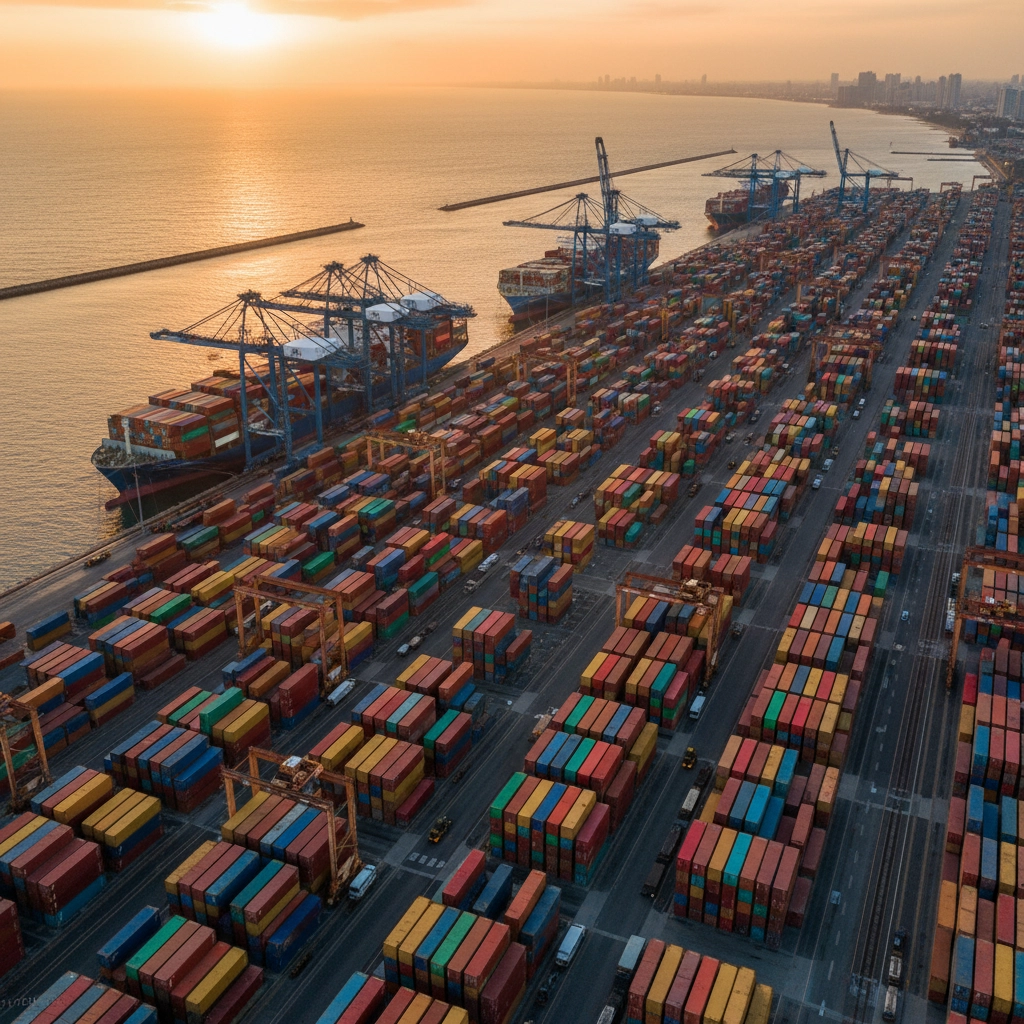
How Global Changes Reach Local Communities
Here's how those ripples reach our doorsteps and affect the businesses we work with every day:
Higher Transportation Costs: When oil prices rise globally, shipping goods costs more : and those costs often get passed on to consumers. That local restaurant suddenly pays more for ingredients, and those costs show up in menu prices.
Inflation and Supply Shortages: If materials become scarce worldwide (like steel, computer chips, or crops), prices for finished products go up. Small manufacturers find their costs doubling while customer budgets shrink.
Interest Rates and Investments: Central banks adjust rates to balance inflation, which affects loans, mortgages, and business growth locally. When rates rise, businesses postpone expansions and families delay major purchases.
Job Creation and Market Changes: When manufacturing moves overseas or new technologies emerge, local job opportunities shift. Communities that adapt quickly often thrive, while those that don't can struggle.
These aren't distant effects : they determine whether our paychecks stretch or shrink, and whether local businesses can afford to expand or must tighten their belts.
Why Small Businesses Feel It First
Small businesses make up over 90% of enterprises worldwide, and they're the heartbeat of every community. When the global economy fluctuates, small business owners often feel it first and most intensely.
Rising Supply Costs: A bakery owner in Missouri suddenly sees flour prices jump 30% because of wheat shortages halfway around the world. Unlike big chains, small businesses can't absorb these costs easily.
Customer Spending Changes: During economic uncertainty, families cut discretionary spending first. Local service providers : from hair salons to repair shops : see fewer customers walking through their doors.
Marketing Budget Pressures: When cash flow tightens, advertising is often the first expense to get cut. This creates a dangerous cycle where reduced visibility leads to fewer customers and even tighter budgets.
Access to Credit: Small businesses typically have less access to favorable loan terms during economic downturns, making it harder to weather storms or invest in growth opportunities.
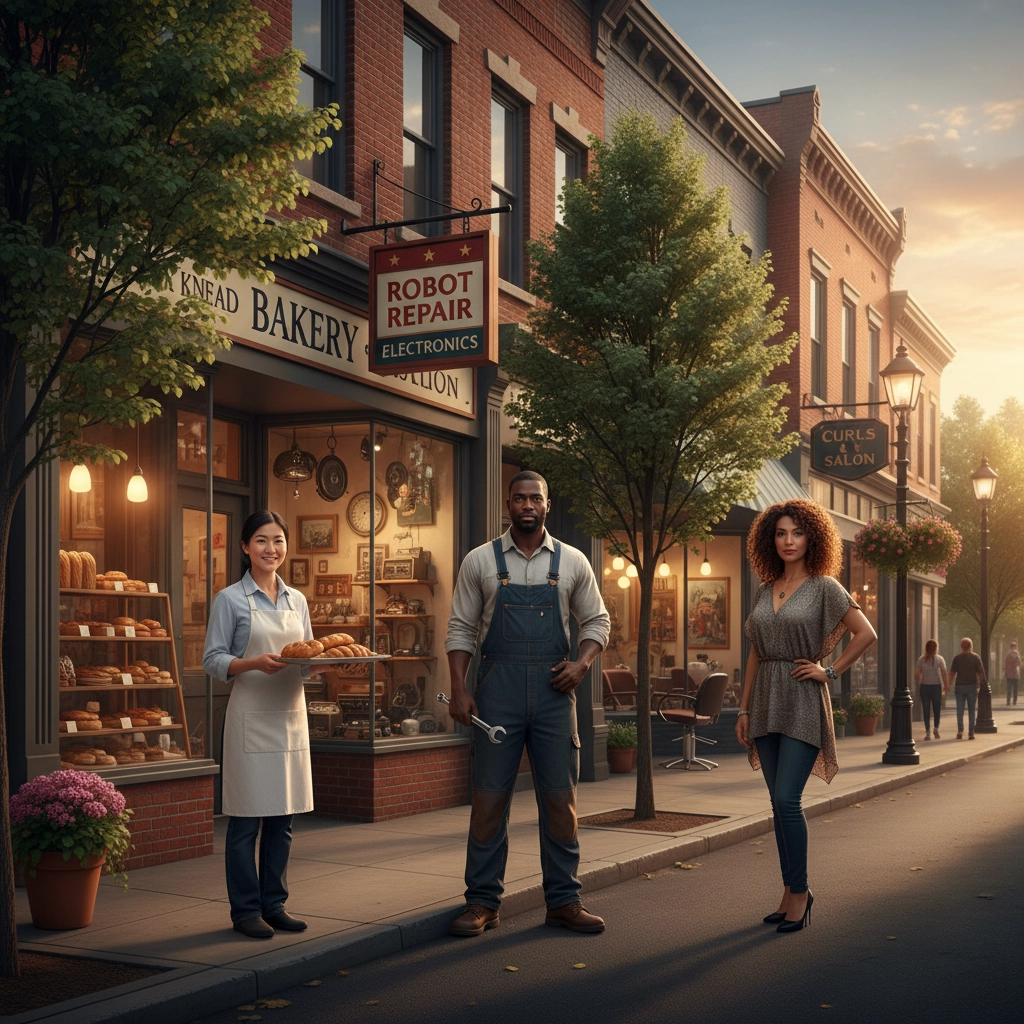
That's why education and awareness are so crucial. When owners understand the economic forces at play, they can adapt faster : by adjusting pricing strategies, refining their advertising approach, diversifying suppliers, and finding creative ways to maintain cash flow.
Real-World Impact: The Numbers Tell the Story
The human cost of global economic instability is staggering. An additional 71 million people in developing countries have been pushed into poverty due to soaring food and energy prices. Even in developed nations, the effects are severe : in May 2022, one in four people in 11 developed countries reported struggling financially.
But it's not just statistics. Consider this real example: In Kenya, where inflation hit a five-year high of nearly 8%, a single mother who sells vegetables found that wholesale prices doubled. She had to double her selling prices, but customers couldn't afford them. She ended up making losses, switched from kerosene to firewood for cooking, stopped taking motorcycle taxis, and reduced meat consumption to once a month.
This story repeats itself across the globe in different forms. It shows how global forces create very personal challenges that require local solutions and community support.
How to Stay Ahead in a Global Economy
Knowledge is power, especially when it comes to economic uncertainty. Here are practical steps individuals and businesses can take:
Stay Informed: Follow trusted financial and economic sources. Understand how global events might influence your industry. At Dependable Brokers, we help our clients track trends that could affect their advertising strategies and customer behavior.
Diversify Everything: Don't rely on one product, one supplier, or one market. Spread your risk across different revenue streams, customer segments, and marketing channels.
Support Local Networks: Buying from nearby businesses keeps money circulating in your community and builds resilient supply chains. Local partnerships often provide more flexibility during disruptions.
Invest in What Matters: Think long-term and avoid emotional reactions to short-term news. Whether it's business equipment, employee training, or marketing strategies, focus on investments that build lasting value.
Protect What You've Built: Proper insurance, financial planning, and consistent marketing keep you stable through ups and downs. Don't let short-term pressures derail long-term success.

Building Strength at Home
When we strengthen our local economies : by creating jobs, supporting small businesses, and preparing financially : we make our communities more resilient to global changes. This isn't just feel-good advice; it's practical economics.
Local businesses that maintain strong community connections often weather economic storms better than those dependent on distant markets. They adapt faster, pivot more easily, and maintain customer loyalty through relationships, not just prices.
For business owners, this means:
Building genuine relationships with customers, suppliers, and community partners
Investing in local talent and training
Maintaining consistent visibility through smart, targeted advertising
Creating multiple touchpoints with your market
Developing flexible business models that can adapt to changing conditions
At Dependable Brokers, we've built our success on these principles. We believe that when local businesses thrive, entire communities become more resilient to global economic pressures.
The Path Forward: Education and Action
The global economy might seem overwhelming, but understanding it gives us power to respond effectively. Every challenge also creates opportunities for those prepared to see them.
Economic disruptions force innovation. Supply chain problems create opportunities for local suppliers. Changing consumer behavior opens new market niches. Technology shifts level playing fields for smaller competitors.
The key is staying informed, remaining flexible, and maintaining strong local networks. When global forces create turbulence, businesses and individuals with deep community roots and diverse capabilities have the best chance of not just surviving, but thriving.
Your Next Steps
Education is the first line of defense against economic uncertainty. The more we understand how the world economy works, the better we can make it work for us.
Whether you're running a business, planning your future, or just trying to make sense of the news : remember that the economy isn't something happening to us. It's something we can influence and shape, together, through our choices and actions.
At Dependable Brokers, we're committed to helping businesses and individuals navigate these complex economic currents. By understanding global trends, supporting local growth, and building resilient strategies, we can create prosperity that lasts.
Start by staying informed, supporting your local business community, and making decisions based on understanding rather than fear. The global economy may be complex, but your response doesn't have to be.
Written by Sarah Mitchell, Economic Research Writer for Amerishop Services




























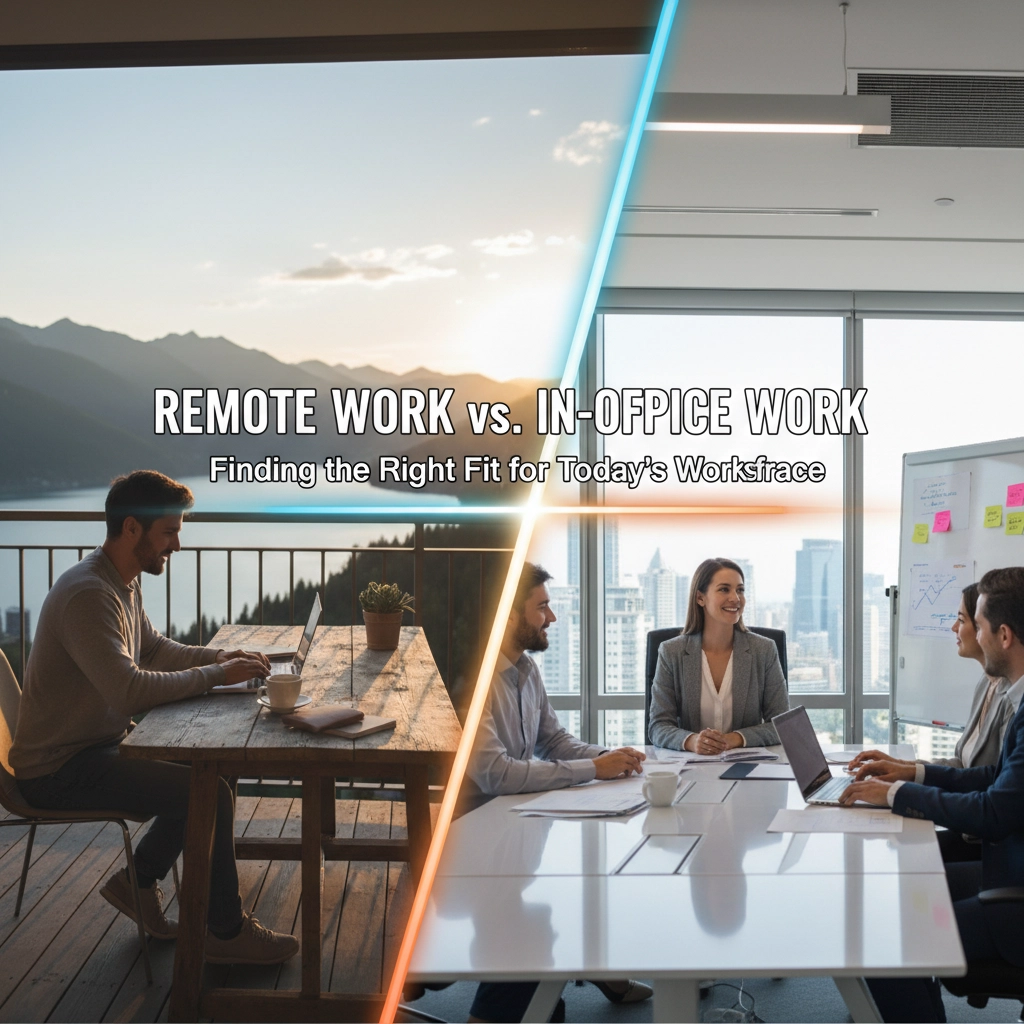
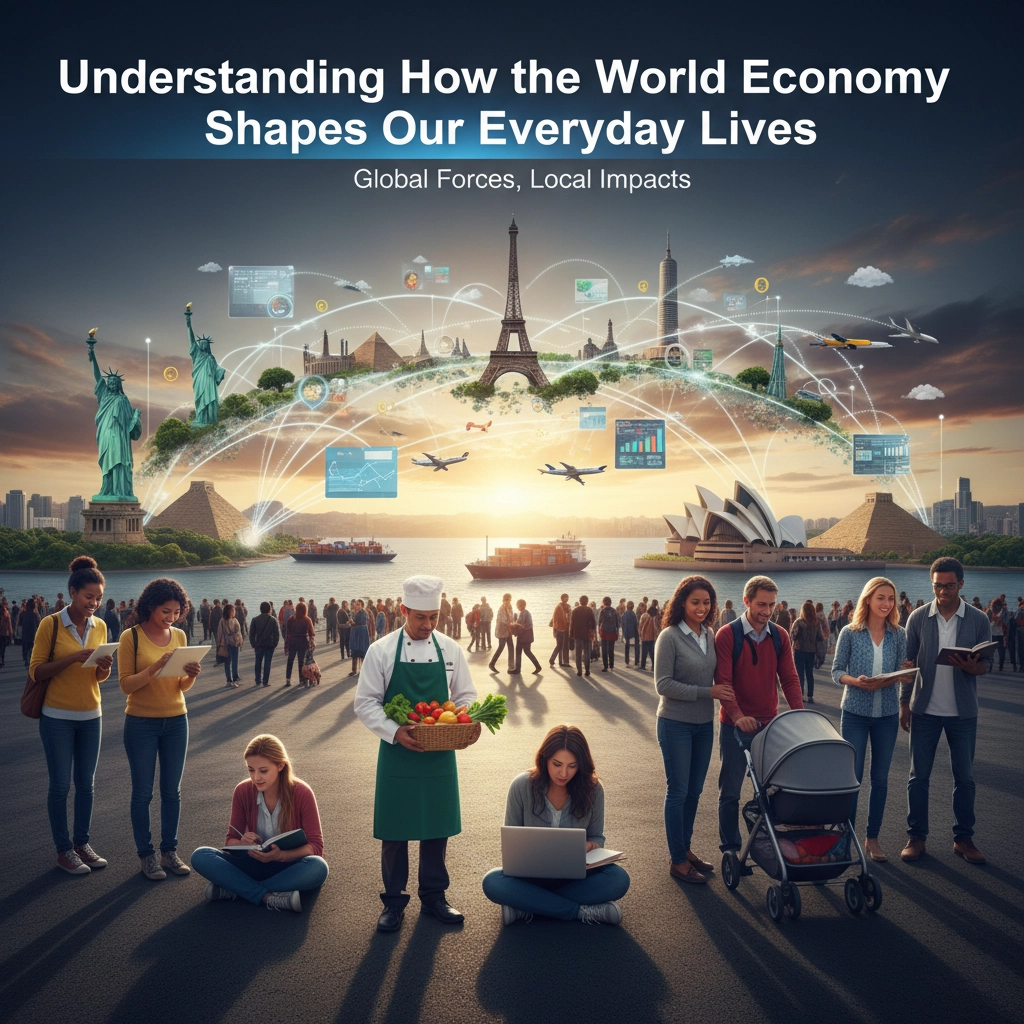
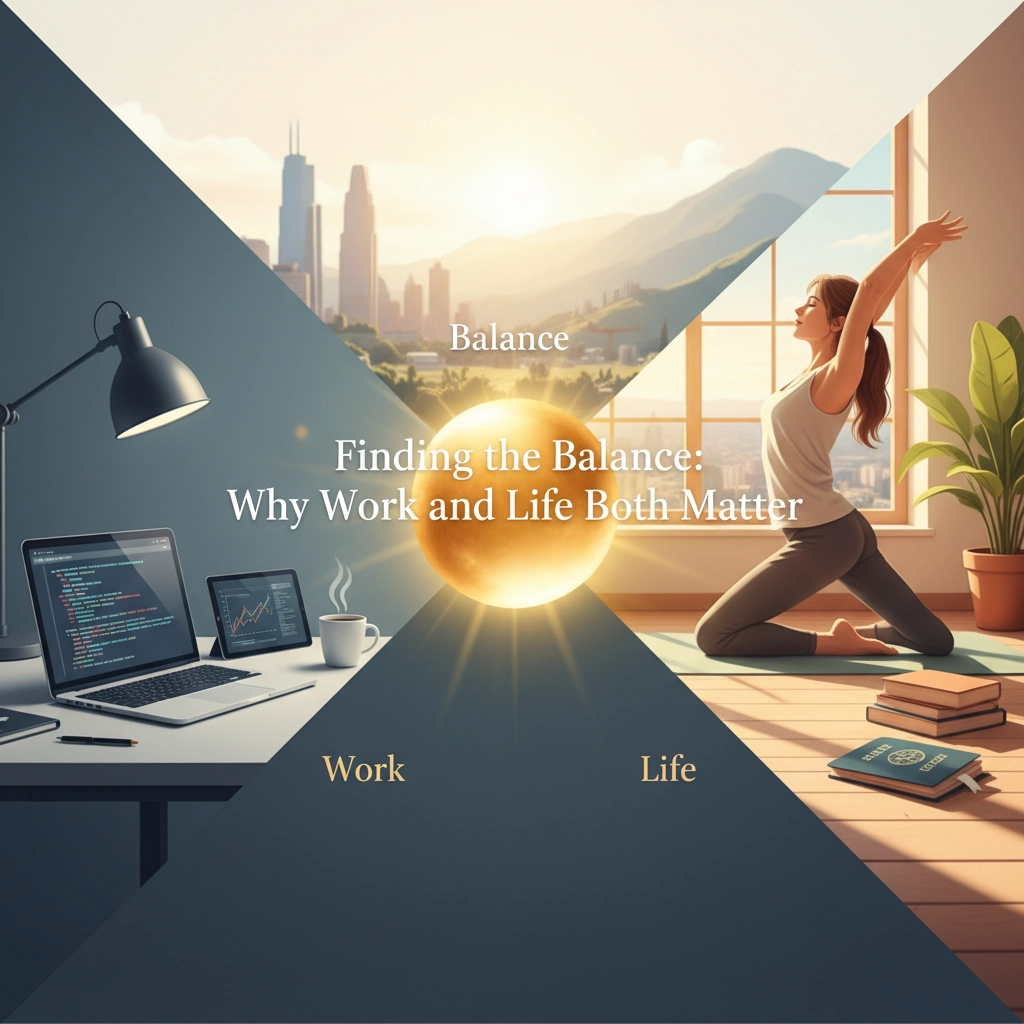











Comments